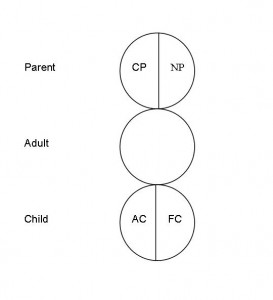 Many people are unsure of what to expect when they come for couples counselling. In this post I will outline what you can expect if you work with me at Manchester Psychotherapy. I use Imago Relationship Therapy in all my sessions. Imago Relationship Therapy presumes that you are both OK, you both have needs that you are trying to get met, and that you are both well matched to help your partner get their needs met.
Many people are unsure of what to expect when they come for couples counselling. In this post I will outline what you can expect if you work with me at Manchester Psychotherapy. I use Imago Relationship Therapy in all my sessions. Imago Relationship Therapy presumes that you are both OK, you both have needs that you are trying to get met, and that you are both well matched to help your partner get their needs met.
One thing I will not be doing is allowing you to come and spend time arguing. You probably do lots of that at home and there is no point paying me to watch you do it! The vast majority of the time you will be in dialogue with each other and I will be guiding you.
A typical session will look like this:
Arrival – focusing on getting you grounded and ready to listen to your partner.
Intentions – What do you want to achieve from this session? How do you need to be to achieve it?
Dialogue – One partner will talk (we call this sending) and the other will listen (we call this receiving). The receiver will mirror what the sender has said back to them, validate and empathise. Can you imagine what that feels like? Your partner will be listening to every word you say and mirroring it back – demonstrating that they really were listening. Contrast this with the diatribe that usually happens in a relationship where one person talks then the other person talks back, usually invalidating what their partner has just said. Being listened to, validated and understood feels fantastic! Once the sender has finished sending the roles are swapped and the receiver now sends, often responding to what they have just heard from their partner.
When sending the focus is on owning feelings, staying away from blame and keeping your partner safe. Senders use “I feel” statements or “the story I’m telling myself..” sentences to do this. It’s my job as the therapist to make sure both partners do not feel attacked or criticised.
Towards the end of the session couples will move into appreciation dialogues – what they like about their partner either during the session or out of it. This brings the positive into your awareness and reminds the couple of why they are together in the first place.
If you are in couples therapy then about 90% of what you have in your relationship is likely to be working. The trouble is that we often can only see the 10% that’s not, just like a sore toe can make our whole body feel rotten. Imago Relationship Therapy aims to bring that 90% back into your awareness.
So how do couples resolve disagreements in Imago Relationship Therapy? When partners have things they want their other half to change the dialogue process will focus on “behaviour change requests”. This is a way of dialoguing about something that you want done differently in your relationship and explaining what feelings go on for you when your partner behaves in that way. These feelings are often linked to childhood and so there is some exploration of that area too. Once the information about the issue has been sent the sender will also suggest ways in which their partner can do things differently. The receiver gets to choose which ones they may be able to “stretch into”. If the receiver can’t see any other way of doing things then they couple will dialogue about that.
I’m sure you appreciate that this post can only cover the bare bones of what happens in a session. Imago Relationship Therapy provides an effective way of structuring couples therapy and keeps the process safe for both partners. It’s about healing the wounds and bringing you together. There is no sitting around slagging your partner off to the therapist or wallowing in all the bad things that have happened between you. The aim is for you to be leaving the session feeling more positive about your relationship than when you came. There will be times when you want to dialogue about painful events in your relationship and this will be done in a way that your partner can really listen, stay safe and avoid defensiveness. By doing this wounds start to heal and the couple learn that their partner is an essential key to their own growth and happiness.
I’m going to finish this article by stating that I love doing Couples counselling, I feel passionate about it. I think the Imago Relationship Therapy model I use is beautiful and I love seeing the couples I work with connecting with each other on a deep level whilst using it. If your relationship is under pressure then I would love to work with you to help you realise the great relationship you could have too.



